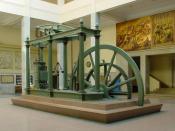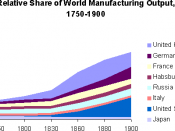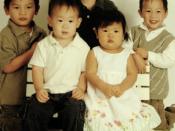There is very good reason to believe that primitive families living in the pre-industrialization age suffered less from stress and frustration and were more satisfied with their ways of life than privatized families who were faced with the inevitable social and psychological problems as the Industrial Revolution evolved.
In contemporary terms, the Industrial Revolution is viewed as a two edged sword. Despite the positive changes brought on by it, its impact on society at large and on families in specific has inspired many researchers.
The era of pre-industrialization focused mainly on agricultural production which was carried out by men, allowing family households to become self-sustained and more relegated to domestic life in the home. The pre-industrial ways of life led to a type of familiar division of labour that left separate and independent spheres of control for both women and men. In the pre-industrial family life, the husband and wife had separate plots of lands, and separate crafts and trading enterprises whereby each spouse retained control over their own profits.
Women's roles were confined to maintaining the moral and spiritual center of the family life and their opportunities outside of the family unit were much more limited. They were the child-bearers taking care of and raising their children while providing and producing goods for the family, and engaging in simple domestic activities such as farming, trade, craftwork, handling of money, saving and investment or even working alongside their husbands in all the household chores. One of the most common domestic activities carried out by women was weaving. Japan is a prototypical example of such a weaving society. Weaving skills were seen as a necessity for women and were considered as a social requirement in order to live. It was the decisive factor in determining the value of women whom if...


